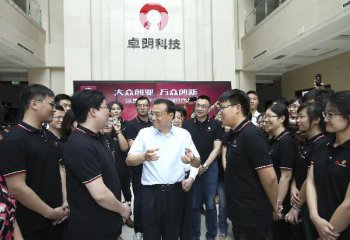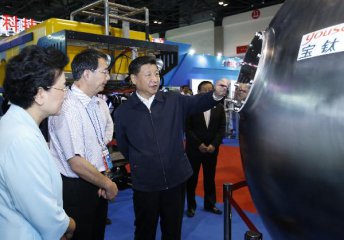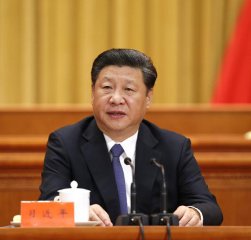 CEOs of China-headquartered companies are prioritising innovation to drive growth and have highlighted it as one of their top strategic priorities, ahead of their global counterparts, finds a new KPMG report.
CEOs of China-headquartered companies are prioritising innovation to drive growth and have highlighted it as one of their top strategic priorities, ahead of their global counterparts, finds a new KPMG report.The report, titled ‘2016 China CEO Outlook – Now or Never’, features China findings from a global KPMG CEO report, which gathered responses from 1,268 CEOs worldwide, including 129 from China.
Despite operating in different industries, one common theme emerged from the responses of China CEOs surveyed: Innovation will be a crucial driver of growth over the next three years. Almost half of the China respondents placed “fostering innovation” as one of the top three strategic priorities for their companies over the next three years – compared to a figure of just 21 percent worldwide. In addition, 92 percent of China respondents believe it is important to include innovation in their business strategy, with 47 percent of China CEOs placing innovation at the top of their personal agendas – compared to 23 percent globally.
John Veihmeyer, Chairman, KPMG International, says: “Despite today’s global geo-political uncertainty and disruptive market and social forces, the CEOs in our survey are focused on growth, by strengthening their capabilities today and readying their businesses for a very different future, through transformation, advanced technology and more specialized talent. Nowhere is this more evident than China, where CEOs are especially confident about the prospects for growth and recognize the importance of creating a culture of innovation, and collaboration.”
According to the survey, half of the China respondents view “new products” as the primary source of growth over the next three years. In addition, China’s CEOs identify “new product development”, “increasing data analysis capabilities”, and “Internet of Things, machine-to-machine technology, Industrial internet or other aspects of technology” as the top three focus areas for further investment in the next three years.
The survey results underscore China’s transition from an investment-intensive, export-led model of growth to one driven by consumption and innovation. The findings are also consistent with the recently-released 13th Five-Year Plan, where innovation is identified as one of five new tenets of China’s economic and social development around which policies will be designed and implemented during 2016-2020.
Benny Liu, Co-Chairman, KPMG China, adds: “Through the use of disruptive technologies such as cloud computing, the Internet of Things, smart industrial robotics, Data & Analytics and enhanced automation, Chinese companies will be able to not only respond to the changes brought by China’s economic restructuring, but will also be able to capture business opportunities derived from it.”
Separately, the global view of growth potential in the world has shifted since 2015. While the US was identified as the region with the greatest growth potential in 2015, this year’s survey shows that CEOs globally view India (38 percent) and China (35 percent) as the most attractive markets for new market growth over the next three years.
At the same time, about two-thirds of China CEOs regard China as the market with the greatest potential for growth, followed by ASEAN (37 percent) and the US (33 percent). Fifty three percent said they would pursue new partnerships and alliances to accelerate the execution of business strategy – a significantly higher percentage than for peers in other countries.
To says: “We have seen numerous examples of Chinese and foreign companies partnering to enter overseas markets. This is in line with a new paradigm of international cooperation which the Chinese government is advancing through its ‘Belt and Road’, ‘International Production Capacity Cooperation’ and ‘Third-country Market Cooperation’ initiatives.”
“China is looking to bring together the comparative advantages of its industries and companies, with those of foreign countries and companies, in order to complement each other. In this way, it is hoped that Chinese and foreign companies will be able to expand to and operate in new markets more easily, and that global productivity will be increased by better matching the supply and demand for investment, products and services in these markets.”
As China continues developing and transitioning towards an advanced economy, there will be a need for foreign technology, knowhow and capital in order to address the changing market landscape. We therefore expect to see increased receptiveness toward inward Foreign Direct Investment, including through measures to improve the investment environment and enhance investor confidence, strengthen the legal system for foreign investment, and lower the threshold for foreign investment and encourage foreign companies to invest in sectors which are important to China’s social and economic development.
Meanwhile, China CEOs highlight emerging technology and strategic risks among the key issues they are most concerned about, while worries over whether or not their company’s products or services will in fact be relevant three years from now weigh heavily. Finding the right talent in strategic priority areas of cyber, Data & Analytics, digital, innovation, and Corporate Social Responsibility is another pressing issue.
“While there are indeed hurdles to overcome, confidence remains high among China respondents. With the right growth strategy in place – coupled with heightened risk awareness and a willingness to innovate – we expect that CEOs in China can deliver on this optimism and thrive in this fast evolving economy,” concludes Liu.
























Latest comments